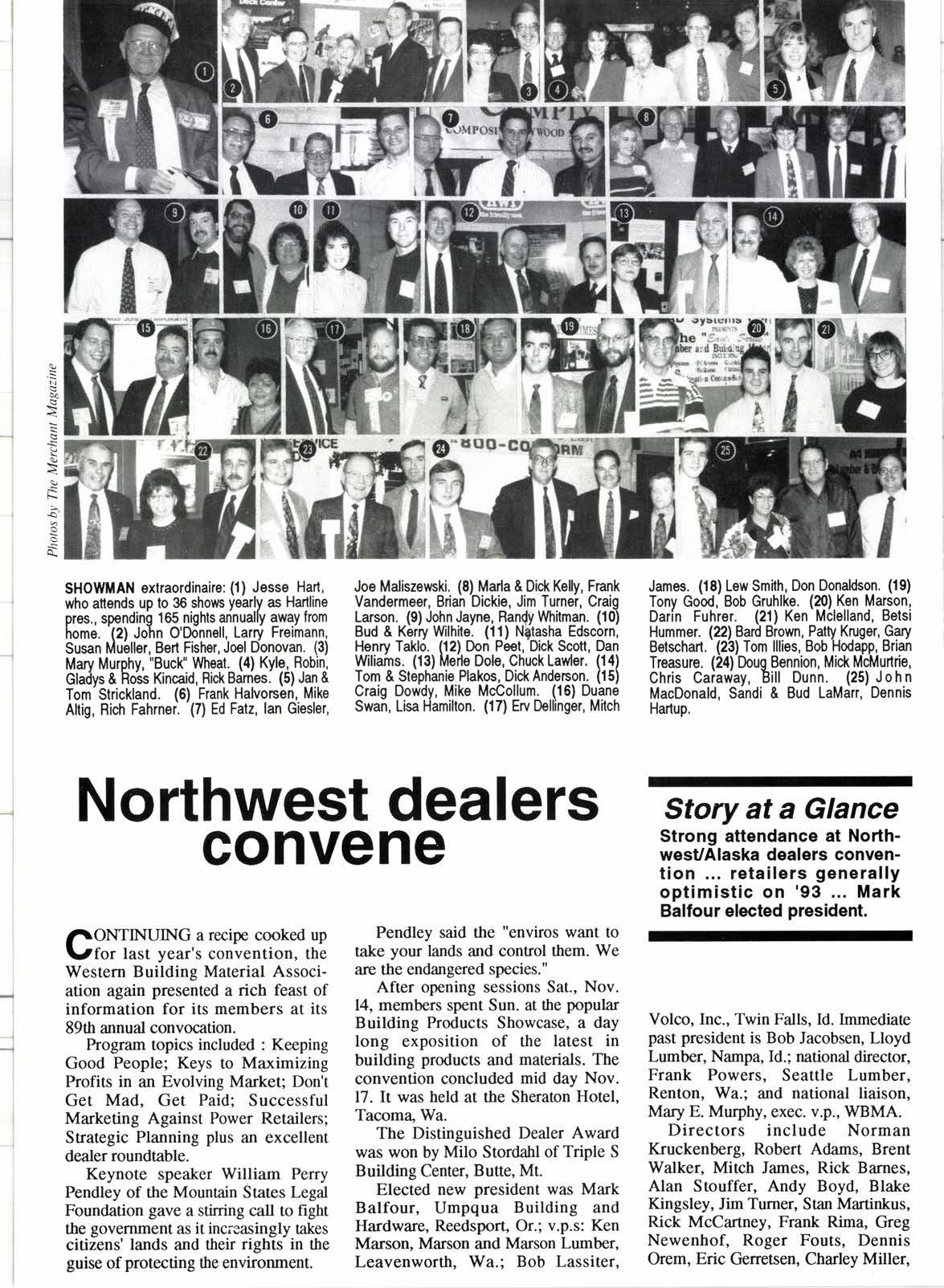
2 minute read
Ways to save fuel, money, natural resources & the environment
CAVING fuel goes beyond saving t,money, as important as that may be to a business. Fuel conservation saves natural resources and protects the environmenl
With prices escalating at the pump and talk of more gasoline taxes to come, a retailer or wholesaler may think he is only concerned with the financial side aspects of fuel economy. However, as a part of the forest products industry, we should be leaders in making the most of natural resources and caring for the environment.
One company practicing good fuel saving habits may not make much difference, but when the 14.9 million commercial trucks consuming 36 billion gallons of fuel annually participate it certainly can
The following tips developed by the American Trucking Associations as Truckers C.A.R.E. (Concerned and Aware of Resources and the Envirorunent) should be followed by all companies whether they operate one or 100 tucks.
I Keep your truck engine well tuned I and maintained.
Good maintenance practices that follow manufacturers' specifications can reduce diesel exhaust emissions and improve fuel economy as well as increase the life of the tuck.
)Onve tQ Don't park off the road in dirt or lD unpaved areas and damage soil and vegetation.
55 instead of 65 mph.
Recent studies show that driving 55 instead of 65 results in a 227o increase in average fuel economy, longer engine life, lower maintenance costs, reduced tire wear and lower engine and tire noise.
Avoid idling for more than five minutes.
This saves fuel, reduces engine wear and cuts down on air pollution.
7l Make sure that your truck is not '! leaking oil, fuel or other fluids that may contaminate the environment.
( Dispose of used engine oil and r) scrap tires in the proper ways, not down sewers or in landfills.
4( Recycle anti-freeze, air-condition- tlf ing refrigerants and other vehicle fluids to save money and help reduce air and ground water pollution.
Carefully maintain the truck exhaust and nuffler system.
This cuts noise and air pollution.
This also creates excessive dust emissions.
(| Use extra caution when handling 7 toads of chemicals and hazardous materials.
This minimizes the chances of an accident or leak and contamination of soil, water and air.
{l Promptly report accidental lltf spills and releases of fuel or chemicals to the proper authorities.
Truckers also should report persons polluting the environment.
Story at a Glance
How to cut fuel costs with good draving habits ... practices that conserve natural resourcss and save the environment.
wf,ffi,:."'txi'';;ffii1ff'eT
next five yeafs? we put the question to five experts. Do their forecasts agree with yours?
Larry Crabtree Manager Pacific Lunber Tenninal Wilmington, Ca.
"For five years from now I have a lot of apprehension but not too much in the way of prediction. Cargo will be characterized by the lack of availability from domestic and Canadian mills. There will be even fewer ballplayers, fewer sources and, obviously, fewer players on the receiving end, as well. Nobody wants to accumulate millions of feet of lumber and then have to inventory it."
Brad Skinner Managing Director of Distribution Services Southern Pacific Railroad Portlan4 Or.
"Certainly the activities in the Pacific Northwest vis-l-vis the federal govemment are going to effect shifts in (shipping) sourcing points on the continenl Potential shifts have begun to some extenL due to certain federal timberlands tied up or at a much lower availabitity. Shifs in (supply) patterns to Canada and to southern yellow pine. We really expect them to start to transpire in 1993 and 1994, unless the government can develop a sustainable yield policy.
"Unfortunately, it's difficult to tell when or to what extent since everything (harvesting) is tied up in the couts right now and no one, including Congress, is making any deci-









